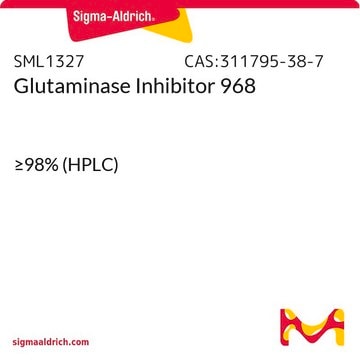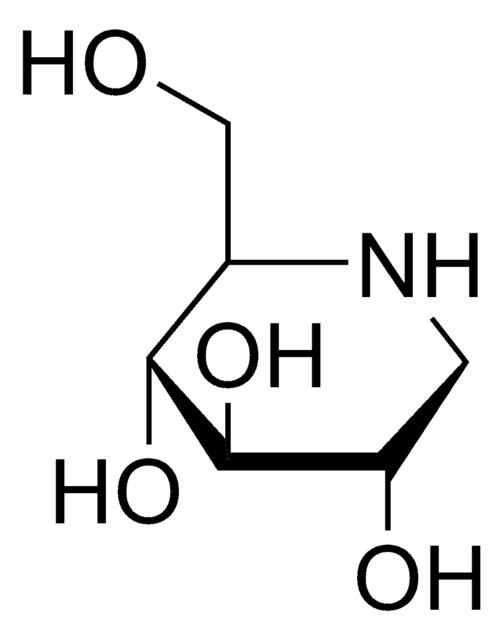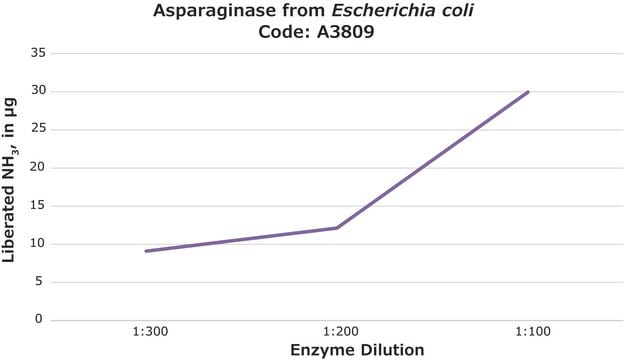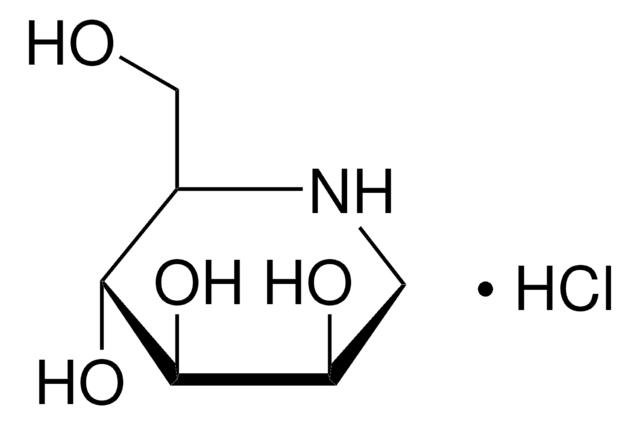D2141
6-Diazo-5-oxo-L-norleucine
>95% (TLC), suitable for ligand binding assays
Synonym(s):
(S)-2-Amino-6-diazo-5-oxocaproic acid, DON
About This Item
Recommended Products
product name
6-Diazo-5-oxo-L-norleucine, crystalline
Assay
>95% (TLC)
Quality Level
form
crystalline
technique(s)
ligand binding assay: suitable
color
light yellow
mp
145 °C
antibiotic activity spectrum
neoplastics
Mode of action
enzyme | inhibits
storage temp.
−20°C
SMILES string
N[C@@H](CCC(=O)C=[N+]=[N-])C(O)=O
InChI
1S/C6H9N3O3/c7-5(6(11)12)2-1-4(10)3-9-8/h3,5H,1-2,7H2,(H,11,12)/t5-/m0/s1
InChI key
YCWQAMGASJSUIP-YFKPBYRVSA-N
Looking for similar products? Visit Product Comparison Guide
Related Categories
General description
Application
Biochem/physiol Actions
Signal Word
Danger
Hazard Statements
Precautionary Statements
Hazard Classifications
Acute Tox. 3 Dermal - Acute Tox. 3 Inhalation - Acute Tox. 3 Oral
Storage Class Code
6.1C - Combustible acute toxic Cat.3 / toxic compounds or compounds which causing chronic effects
WGK
WGK 3
Flash Point(F)
Not applicable
Flash Point(C)
Not applicable
Personal Protective Equipment
Certificates of Analysis (COA)
Search for Certificates of Analysis (COA) by entering the products Lot/Batch Number. Lot and Batch Numbers can be found on a product’s label following the words ‘Lot’ or ‘Batch’.
Already Own This Product?
Find documentation for the products that you have recently purchased in the Document Library.
Articles
Sigma article discusses tumor cell metabolic pathways, focusing on aerobic glycolysis and mitochondrial activity.
Our team of scientists has experience in all areas of research including Life Science, Material Science, Chemical Synthesis, Chromatography, Analytical and many others.
Contact Technical Service









